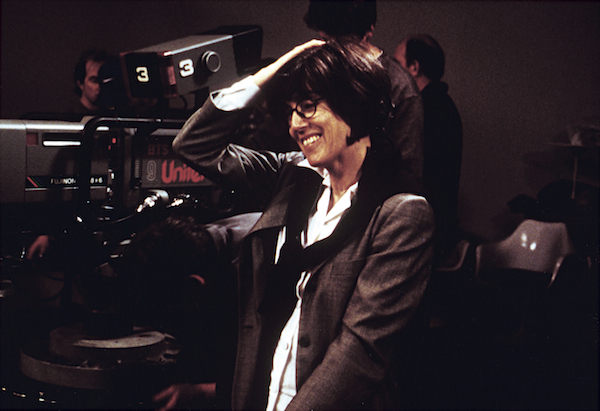You've Got Rapture
Writer-director Nora Ephron prefers to couch her words (with a squishy pillow and a quiet afternoon).

Editors' note: Nora Ephron passed away June 26, 2012, at 71. She was a longtime friend of this magazine, and this essay shows her trademark thoughtfulness and wit. (And here are two more of her pieces—about the maintenance that comes with aging and a late-arriving Aha! Moment.)
I've just surfaced from spending several days in a state of rapture: I was reading a book. I loved this book. I loved every second of it. I was transported into its world. I was reminded of all sorts of things in my own life. I was in anguish over the fate of its characters. I felt alive and engaged and positively brilliant, bursting with ideas, brimming with memories of other books I've loved. I composed a dozen imaginary letters to the author, letters I'll never write, much less send—letters of praise, letters of entirely inappropriate personal information about my own experiences with the author's subject matter, even a letter of recrimination when one of the characters died and I was grief-stricken. But mostly I composed imaginary letters of gratitude: The state of rapture that occurs when I read a wonderful book is one of the main reasons I read, but it doesn't happen every time, or even every other time, and when it does, I'm truly beside myself with joy.When I was a child, nearly every book sent me into something approaching bliss. Can I be romanticizing my early reading experiences? I don't think so. I can tick off so many books that I read and reread when I was growing up—foremost among them the Oz books, which I was obsessed with—but so many others that were favorites in the most compelling way. I wanted so badly to be Jane Banks, growing up in London with Mary Poppins for a nanny, or Homer Price, growing up in Centerburg with an uncle who owned a doughnut machine that wouldn't stop making doughnuts. Little Sara Crewe in Frances Hodgson Burnett's classic A Little Princess was my alter ego—not in any real way, you understand, as she was a much better-behaved child than I ever was, but I was so entranced by the story of the little rich girl who was sent up to the garret to be the scullery maid at the fancy boarding school where she'd been a pampered student before her father died. Oh, how I wanted to be an orphan! I read The Nun's Story and, oh, how I wanted to be a nun! I wanted to be shipwrecked on a desert island and stranded in Krakatoa! I wanted to be Ozma and Jo March and Anne Frank and Nancy Drew and Eloise and Anne of Green Gables—and what's more, I could be, at least in my imagination.
I did most of my reading as a child on my bed or else on a rattan sofa in the sunroom of the house I grew up in. Here's a strange thing: Whenever I read a book I love, I start to remember all the others that I fell in love with, and I can remember where I was living and the couch I was sitting on when I read them. After college, living in Greenwich Village, I sat on my brand-new wide-wale corduroy couch and read The Golden Notebook by Doris Lessing, the extraordinary novel that changed my life and the lives of so many other young women in the 1960s. I have the paperback copy I read at the time, and it's dog-eared, epiphany after epiphany marked so that I could easily refer back to them. Does anyone read The Golden Notebook nowadays? I don't know, but back then, just before the second stage of the women's movement burst into being, I was electrified by Lessing's heroine, Anna, and her struggle to become a free woman. Work, friendship, love, sex, politics, psychoanalysis, writing—all the things that preoccupied me were Lessing's subjects, and I can remember how many times I put the book down, reeling from its brilliance and insights.
Cut to a few years later. The couch is covered with purple slipcovers, and I'm reading for pure pleasure—it's The Godfather, by Mario Puzo, a divine book that sweeps me off into a wave of romantic delirium. I want to be a mafioso! No, that's not quite right. Okay then, I want to be a mafioso's wife! No, that's not quite right either. Okay then, I'd rather be married to Michael Corleone than married to the man I happen to be married to. Exclamation point.



